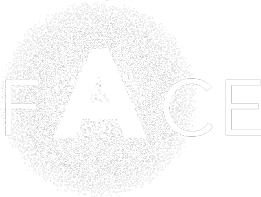Case study: “Between COVID19 after effects and European Green Deal” (all documents)
FACE is proud to unravel its new case study, carried out by FAIR economics with the collaboration of Dr. Ingo Rollwagen : “Between COVID19 after effects and European Green Deal: Challenges for small and medium-sized aluminium processing companies in Germany“
The study adds up to our previous important surveys on the European aluminium downstream competitiveness: namely the two surveys commissioned by FACE in 2015 and 2019 to the GRIF group of the LUISS University of Rome.
The study focuses on the aluminium market in Germany, market leader in Europe and among the first in the world as per capita of metal consumption, had the purpose of verifying the competitiveness of the main EU protagonists on specific segments: especially on second transformation and processing companies, tariff measures (shared by all EU countries), Covid-19 impact, and finally on the possible European Commission’s Green Deal role in supporting the sustainable relaunch of the Aluminium industry in Germany and, to a larger scope, in Europe.
The results of the FAIR economics Policy Paper go beyond expectations altogether, even when considering the peculiarity of the context in which the surveys were carried out. The comment on trade policies acts as a central point of the study’s conclusions; which defines the import duty of raw metal as an indisputable cause of the inflation in the EU market, and with a total extra cost for the system ranging from 5.6 and 15.5 billion euros in the period 2002-2013 (depending on the scenarii considered).
Due to a lack of raw materials and with primary production having fallen sharply in recent years, the value chain of the German aluminium processing industry depends heavily on foreign metal production. Import duties lead to a cost disadvantage for German semi-finished product manufacturers compared to foreign competitors. As a result of the imposition of a duty on raw aluminium, the annual production costs of downstream aluminium have increased by about 100 million euros in Germany alone and by about one billion euros in Europe. A sum, as shown in the above Policy Paper, which is deprived of the small and medium-sized enterprises in Germany by the virtual premium on aluminium produced in the EU28. However, companies need these resources to master the digital, sustainable transformation and to recover the associated costs.
Per tonne of aluminium, the virtual aluminium purchased by the companies – since the EU primary aluminium producers also produce aluminium within EU 28 – amounts to about 85 euros per tonne. These are resources that small and medium-sized enterprises lack.
Based on their findings, the present study recommends:
- Increased support for research and development: Stronger support for research on metallic alloys
- Acceleration of R&D and applications – so that innovative products – related to developments in the aluminium industry (lightweight construction, etc.) can reach the market faster.
- Reduction of bureaucracy – to reduce costs and increase agility. Administrative burdens place a disproportionate burden on small and medium-sized enterprises in their sustainable transformation. Effective safeguards and remedies – to ensure security of supply and protect against dumping from countries such as India and China, which are flooding the markets with high-carbon semi-finished products
- The recovery plan in response to the coronavirus-induced challenge must support long-term growth in domestic production, high-quality manufacturing and low-carbon innovation. It must maintain a strategic advantage in aluminium to ensure security of supply for key sectors. And it must involve working with key trading partners to share best practices in adapting to the new conditions.
- The small and medium-sized aluminium processing industry could now be relieved if, as in the COVID-19 pandemic, aluminium as an important raw material were exempted from import tax.
Click on the folowing links to download:

























